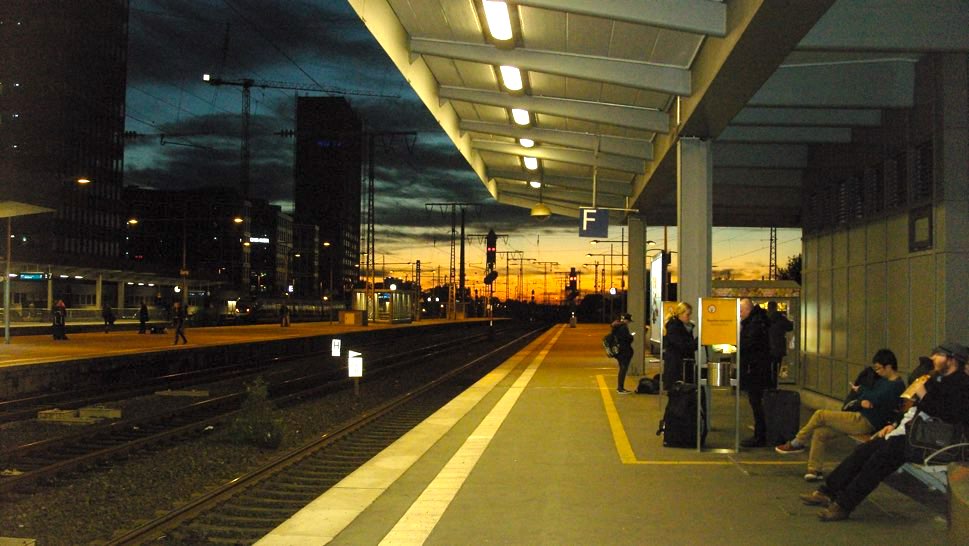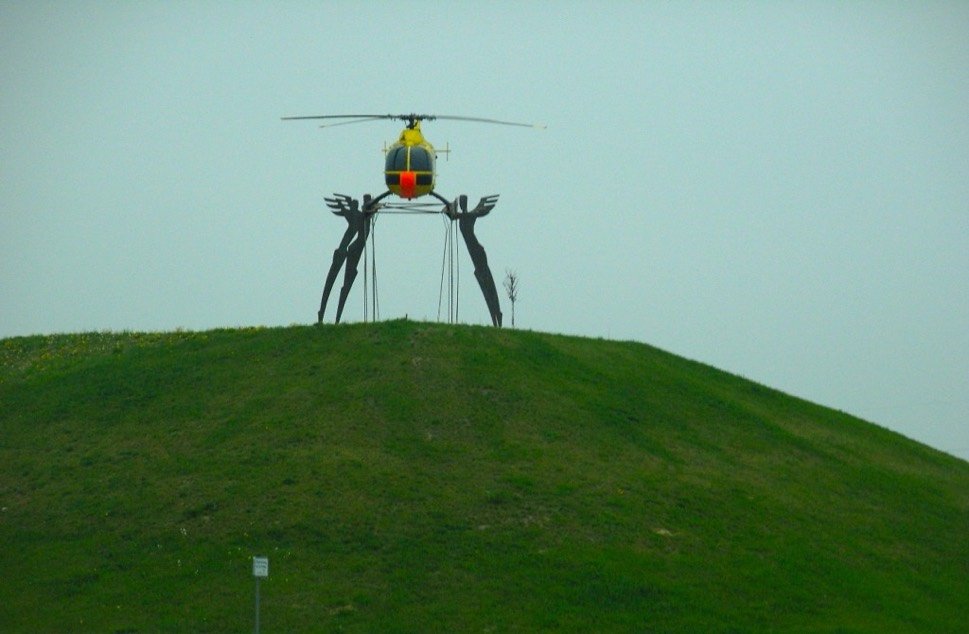Society & Folk
FAMOUS DECEASED GERMANS

Several deceased German individuals have in the past made notable contributions to German and world culture or played an important role in history. They have helped improve lives across the world, shaped Europe and some have been acclaimed for inventing such things as the car and the computer.
Johannes Gutenberg (1398-1468)
Originally a goldsmith and inventor, he is regarded as the father of book printing by inventing movable type printing in Europe ca. 1450. His major work, the Gutenberg Bible, also known as the 42-line bible, has been acclaimed for its high aesthetic and technical quality.
Nicolaus Copernicus (1473-1543)
Known as the first astronomer to formulate the modern heliocentric theory of the solar system. His epochal book, On the Revolutions of the Celestial Spheres, De revolutionibus orbium coelestium, is often conceived as the starting point of modern astronomy, as well as a central and defining epiphany in the history of science.
Martin Luther (1483-1546)
A monk, priest, professor, theologian, and church reformer, his questioning of the teachings of the Roman Catholic Church inspired the Protestant Reformation. This deeply influenced the doctrines and culture of the Lutheran and Protestant traditions, as well as the course of Western civilisation.
Johann Sebastian Bach (1685-1750)
A composer and organist whose works for choir, orchestra and solo instruments brought the Baroque period to its ultimate maturity. Without necessarily giving it new forms, he enriched the prevailing German style and made a deep impact on the development of church music. He is regarded as one of the greatest composers of all time.
Johann Wolfgang Goethe (1749-1832)
A poet and novelist, his most enduring work, the two-part dramatic poem Faust, is considered one of the peaks of world literature. Goethe’s other well-known literary works include Wilhelm Meister’s Apprenticeship, the epistolary novel The Sorrows of Young Werther and the semi-autobiographical novel Elective Affinities.
Wolfgang Amadeus Mozart (1756-1791)
An influential composer of the Classical era, his output of over 600 compositions includes works widely acknowledged as pinnacles of classical music. Mozart is among the most endearingly popular of European composers and many of his works are part of the standard concert repertoire. He is generally considered to be one of the greatest composers ever.
Otto von Bismarck (1815-1898)
A European statesman of the 19th century and as Prime Minister of Prussia from 1862 to 1890, he engineered the Unification of Germany. From 1867, he was Chancellor of the North German Confederation. When the German Empire was declared in 1871, he served as its first Chancellor. Bismarck was subject to personal cult in Germany for a long time after his death. Due to his ruling in the brief period of Imperial German colonialism, the Bismarck Archipelago on Papua-New Guinea is named after him.
Karl Friedrich Benz (1844-1929)
An engine designer and automobile engineer generally regarded as the inventor of the gasoline-powered automobile. Other German contemporaries, Gottlieb Daimler and Wilhelm Maybach, also worked independently on the same type of invention, but Benz patented his work first and, after that, patented all of the processes that made the internal combustion engine feasible for use in automobiles. In 1886 Benz was also granted a patent for his first engine, which he had designed in 1878. In 1885, Benz created the motorcar, Motorwagen, the first commercial automobile.
Paul Gottlieb Nipkow (1860-1940)
A technician and television pioneer, he invented the electric telescope for the electric reproduction of illuminating objects, which were the basic apparatuses for television broadcast. He proposed the first practical television principle based on a scanning disc that transmitted live moving images with tone graduation or grey scale in 1884. Nipkow became famous for being the creator of television, even though in the same period, many other technicians from the U.S., the United Kingdom, France and the Soviet Union played an important role in the development of modern television. In 1935 the first public television station in the world was named after him.
Albert Schweitzer (1875-1965)
A theologian, musician, philosopher and physician, he received the 1952 Nobel Peace Prize in 1953 for his philosophy of reverence for life expressed in many ways but most famously in founding and sustaining the Lambaréné Hospital in Gabon, west central Africa.
Konrad Adenauer (1876-1967)
A conservative statesman, his political career spanned 60 years, beginning as early as 1906. He is most noted for his role as the first Chancellor of West Germany from 1949–1963 and as chairman of the Christian Democratic Union from 1950 to 1966. He was the oldest chancellor ever to serve Germany.
Albert Einstein (1879-1955)
A theoretical physicist widely considered to have been one of the greatest physicists of all time. He was best known for his theory of relativity and specifically the mass-energy equivalence, E=mc2. He was awarded the 1921 Nobel Prize in Physics for his services to Theoretical Physics, and especially for his discovery of the law of the photoelectric effect.
Konrad Zuse (1910-1995)
An engineer and computer pioneer whose greatest achievement was the completion of the first functional tape-stored-program-controlled computer, the Z3, in 1941. The Z3 is claimed to be the first computer in the world. Zuse also designed the first high-level programming language, the Plankalkül, published in 1948, although his was a theoretical contribution, since the language was never actually implemented within his lifetime and did not directly influence any early-implemented languages.
Karl Lagerfeld (1933-2019)
His name was actually Karl Otto Lagerfeldt but almost certainly the fashion artist would not particularly care to be reminded of this, since for him, history and the even immediate past were always long passé. He was firmly, perhaps fundamentally based in the here and now. Somewhat accordingly he also kept silent about his birth year, either September 10, 1933 or 1938. It was the former.
Age seems obsolete anyway when you keep reinventing your surroundings. Lagerfeld was one of the famous and popular contemporary designers in the world. His turn-over-rate of collections, inspirations and circles was quite astonishing. Endless energy and an endless interest in the currents of lifestyle transcending the boundaries of fashion is a noteworthy trait of the man.
In his early teens Lagerfeld and his mother moved from Hamburg to Paris where the designer started his career. He would later become the revolutionary of Chanel eleven years after Madame Chanel’s death thus giving the bourgeois and dying label a somewhat rebellious and crisp makeover. During his career he worked for different well-known fashion labels and also eventually launched his own brand. The fashion designer was also a photographer and an avid collector of books.
Pope Benedict XVI (1927-2022)
On April 19, 2005, the boulevard newspaper Bild euphorically informed the whole of Germany that not only Josef Alois Razinger had become Pontiff but the Germans too. The bizarre headline read “We are Pope!”, clearly with a sort of cherishing and unifying ring to it. That the Bavarian cardinal was appointed to represent the highest office at the Vatican was quite unexpected for many, including for the man of God himself.
The 265th Pontiff even admitted that he would have happily devoted his time to writing and studying instead but obviously gave into the vocation with bravura. Ever since his inauguration, the Pope received recognition and critique. Perhaps most noteworthy in terms of popularity is the fact that the silent scholar was celebrated like a pop star at the World Youth Day in Cologne in 2005. Ratzinger was born on April 16, 1927 in the small Bavarian town of Marktl am Inn. He surprised the world in 2013 by resigning.
By Carla C. Degen, edited Jan 11 2023

SOCIETY & FOLK IN RUHR
Anyone who has experienced the hospitality offered by this society knows that the country and its folk have changed enormously over recent years. The Ruhr is, as a whole, peaceful and its citizens are mostly generous and contented.

SOCIALISING IN RUHR
Staying in touch and getting together with others living in a similar situation can be important. Expat groups in social media are highly valuable sources for connecting. Socialising in the Ruhr Metropolis can include events, international clubs or heading for a popular spot to meet international residents.

CYCLING IN RUHR
Cycling in the Ruhr Metropolis can be enjoyable and most rewarding. Bike paths criss cross the whole of the region and weave their way across most urban areas. Hop on a bicycle to discover quieter city districts or nearby villages. Try riding along the banks of local rivers, in wilder natural spaces or the open meadows of outlying regions.

TRAINS IN RUHR
The massive major rail operator Deutsche Bahn remains strong in Germany. North-south trains run through the Ruhr Metropolis on their way past Hamm and Dortmund, onward to Düsseldorf, Cologne, Bonn and beyond. Many also travel via nearby Wuppertal.
The city guide for expats
Amazing Capitals Ruhr is a fresh and informative location guide full of insights for expats. It is dedicated to helping international professionals make choices, settle and participate in the Ruhr Metropolis, a vast region in Germany with much to offer.




